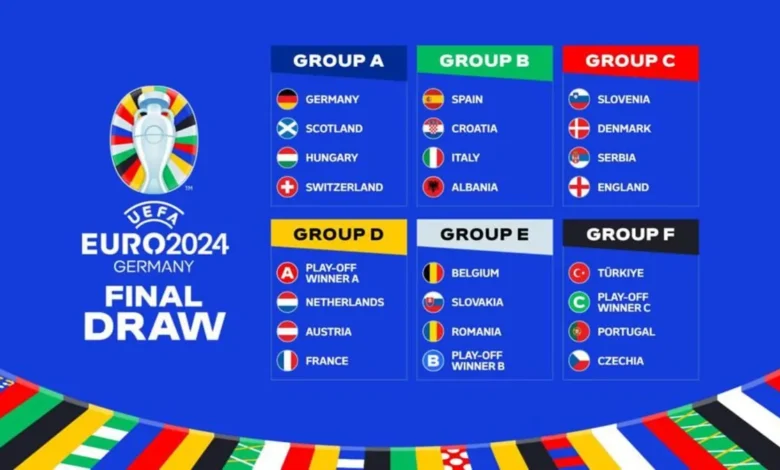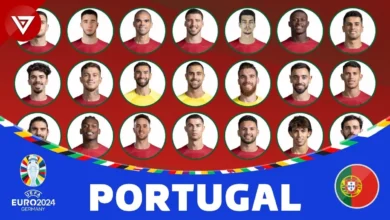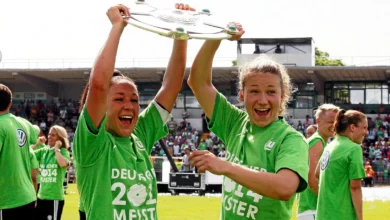UEFA European Championship Games: A Spectacle of Football Excellence

UEFA European Championship Games, affectionately known as the Euros, is a cornerstone of global football. Held every four years, it showcases the best footballing talent across Europe, blending rich history, fierce competition, and unforgettable moments. This article explores the UEFA European Championship Games journey, its format, iconic moments, and its cultural significance.
A Brief History of the UEFA European Championship Games
The UEFA European Championship Games, established in 1960, was born from a vision to unite European nations through football. Its roots lie in the ambition of Henri Delaunay, a French administrator, who first proposed a pan-European tournament in the 1920s.
The Inaugural Tournament
The first edition, held in 1960, featured only four teams: the Soviet Union, Yugoslavia, Czechoslovakia, and France. Unlike today’s grand spectacle, it was a relatively modest affair. The Soviet Union triumphed, defeating Yugoslavia 2-1 in the final. This success laid the foundation for future editions and proved the viability of a European competition.
Evolution Over the Decades
The tournament grew in popularity and size over the years. From eight teams in 1980 to 16 in 1996, the expansion reflected the growing quality of European football. In 2016, UEFA European Championship Games expanded the tournament to 24 teams, allowing more nations to participate and bringing the competition to new heights.
Cultural and Historical Significance

UEFA European Championship Games Beyond the pitch, the Euros have mirrored Europe’s political and cultural evolution. From the Cold War era’s Soviet dominance to the rise of smaller nations like Denmark in 1992 and Greece in 2004, the tournament symbolizes unity amid diversity.
The Format: A Showcase of Strategy and Skill
The Euros’ format has been fine-tuned over the decades, creating a balance between inclusivity and competitiveness.
Qualification Phase
The road to the Euros begins with a rigorous qualification process involving all UEFA member nations. Divided into groups, teams play home-and-away matches to secure their spot. With the introduction of the UEFA Nations League, smaller nations now have an additional route to qualify, enhancing competition and excitement.
Group Stage Drama
The tournament itself starts with a group stage, featuring six groups of four teams. Each team plays three matches, with the top two and some best third-placed teams advancing to the knockout rounds. This phase often produces high-stakes drama, as teams fight to keep their tournament dreams alive.
Knockout Rounds and the Final Showdown
The knockout phase is where legends are born. Single-elimination matches heighten the stakes, leading to a climactic final. The grand finale, held in iconic stadiums like Wembley and Stade de France, is a celebration of football at its finest.
Unforgettable Moments in Euros History
The Euros have provided countless moments of magic, heartbreak, and triumph, making it one of the most cherished tournaments in football.
Denmark’s Fairytale in 1992
Denmark’s victory in 1992 is the stuff of legends. Initially failing to qualify, they were invited to replace Yugoslavia at the last moment. Against all odds, the Danes won the tournament, defeating reigning champions Netherlands and then Germany in the final.
Greece’s Unlikely Triumph in 2004
Greece’s improbable win in 2004 remains one of football’s greatest underdog stories. Employing a defensive masterclass under coach Otto Rehhagel, Greece defeated hosts Portugal in the final. Their victory inspired generations and proved that teamwork and strategy could conquer even the strongest opponents.
Cristiano Ronaldo’s Redemption in 2016
Portugal’s 2016 triumph was marked by resilience and redemption. Cristiano Ronaldo, their talisman, was injured early in the final against France. Yet, his team rallied, with substitute Eder scoring the winning goal in extra time. This victory cemented Portugal’s place in football history and added a glorious chapter to Ronaldo’s illustrious career.
The Role of Host Nations
Hosting the UEFA European Championship Games is a matter of pride and prestige. It brings economic benefits, unites nations, and provides a stage for unforgettable football.
Economic and Infrastructural Impact
From upgrading stadiums to boosting tourism, hosting the Euros significantly impacts the host nation’s economy. Countries like Germany (1988) and Poland-Ukraine (2012) have seen lasting benefits from the event, including improved infrastructure and global visibility.
Cultural Exchange and Unity
The tournament also fosters cultural exchange, as fans from diverse backgrounds come together to celebrate the sport. The 2020 edition, held across multiple countries, was a testament to football’s power to transcend borders.
Memorable Host Performances
Host nations often rise to the occasion. France’s victory in 1984, led by Michel Platini, and Italy’s spirited run in 1980 are prime examples of how the home advantage can galvanize teams.
The Future of the UEFA European Championship Games
As football evolves, so does the Euros. Innovations in technology, changes in format, and a commitment to inclusivity ensure the tournament remains relevant and exciting.
Technology in Football
The use of VAR (Video Assistant Referee) and goal-line technology has enhanced fairness and reduced controversies. These advancements reflect UEFA’s dedication to maintaining the integrity of the game.
Sustainability Goals
Recent editions have focused on sustainability, with host nations striving to reduce their environmental footprint. From eco-friendly stadiums to green transportation, the Euros are setting an example for other global events.
Expanding Horizons
As the tournament continues to grow, UEFA may consider further innovations, such as hosting matches outside Europe or introducing new formats. These changes would broaden the competition’s appeal while preserving its rich traditions.
Why the UEFA European Championship Games Matters
The UEFA European Championship Games is more than just a football tournament; it’s a celebration of passion, unity, and excellence. It brings together nations, showcases the best talent, and creates moments that resonate across generations.
A Platform for Legends
From Marco van Basten’s stunning volley in 1988 to Zinedine Zidane’s midfield mastery in 2000, the Euros have been a stage for footballing legends to shine.
Uniting Fans Worldwide
The tournament transcends borders, uniting fans with a shared love for the game. Whether it’s the roar of the crowd or the joy of a last-minute goal, the Euros embody the spirit of football.
Inspiring the Next Generation
For young players and fans, the Euros are a source of inspiration. They showcase the beauty of teamwork, the thrill of competition, and the magic of football.
Conclusion
The UEFA European Championship games are a testament to the power of sport. From their humble beginnings to the grand spectacle they are today, the Euros have captured the hearts of millions. As we look forward to future editions, one thing is certain: the Euros will continue to be a stage where dreams are made, legends are born, and football is celebrated in its purest form.

